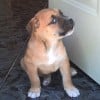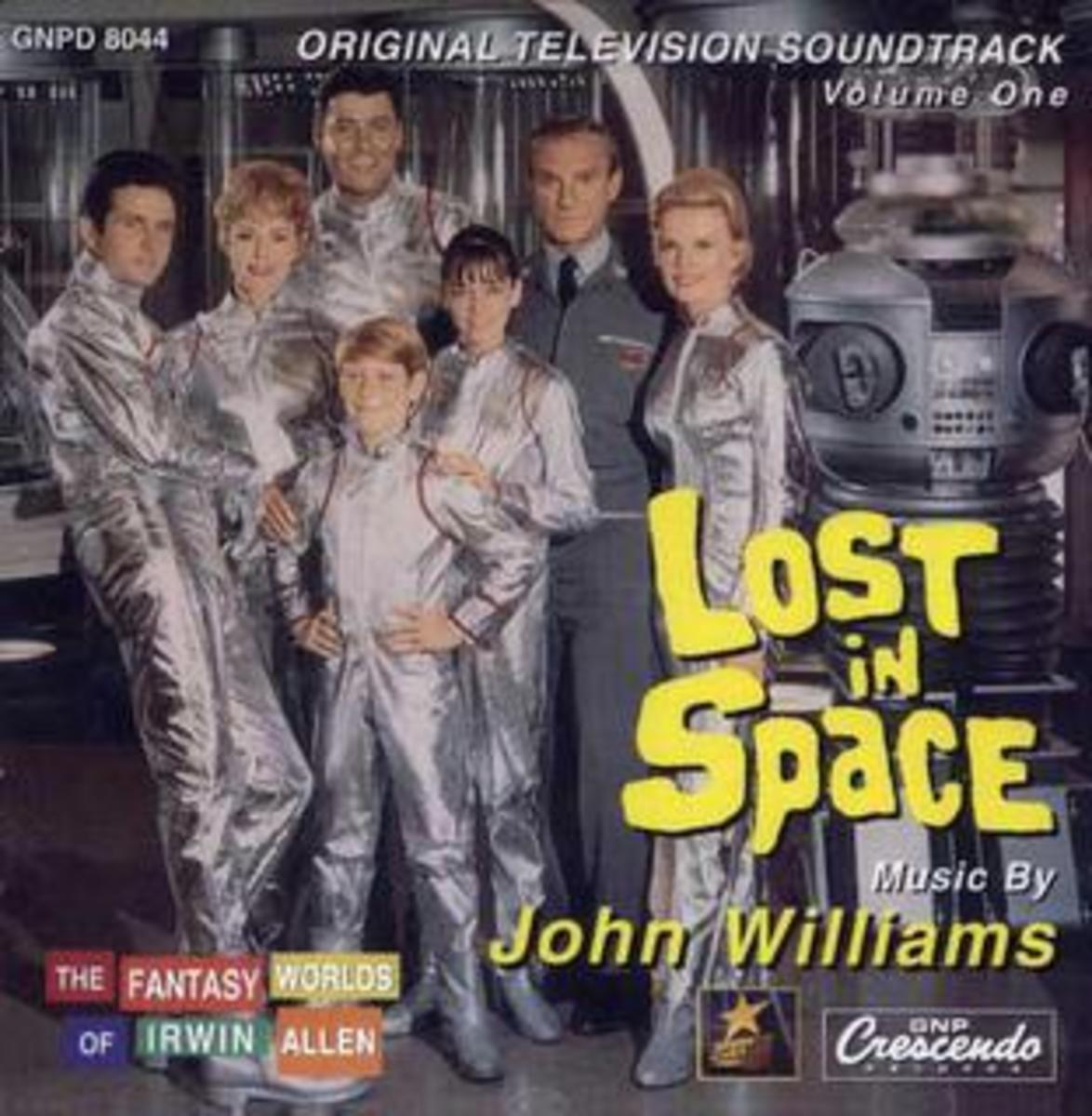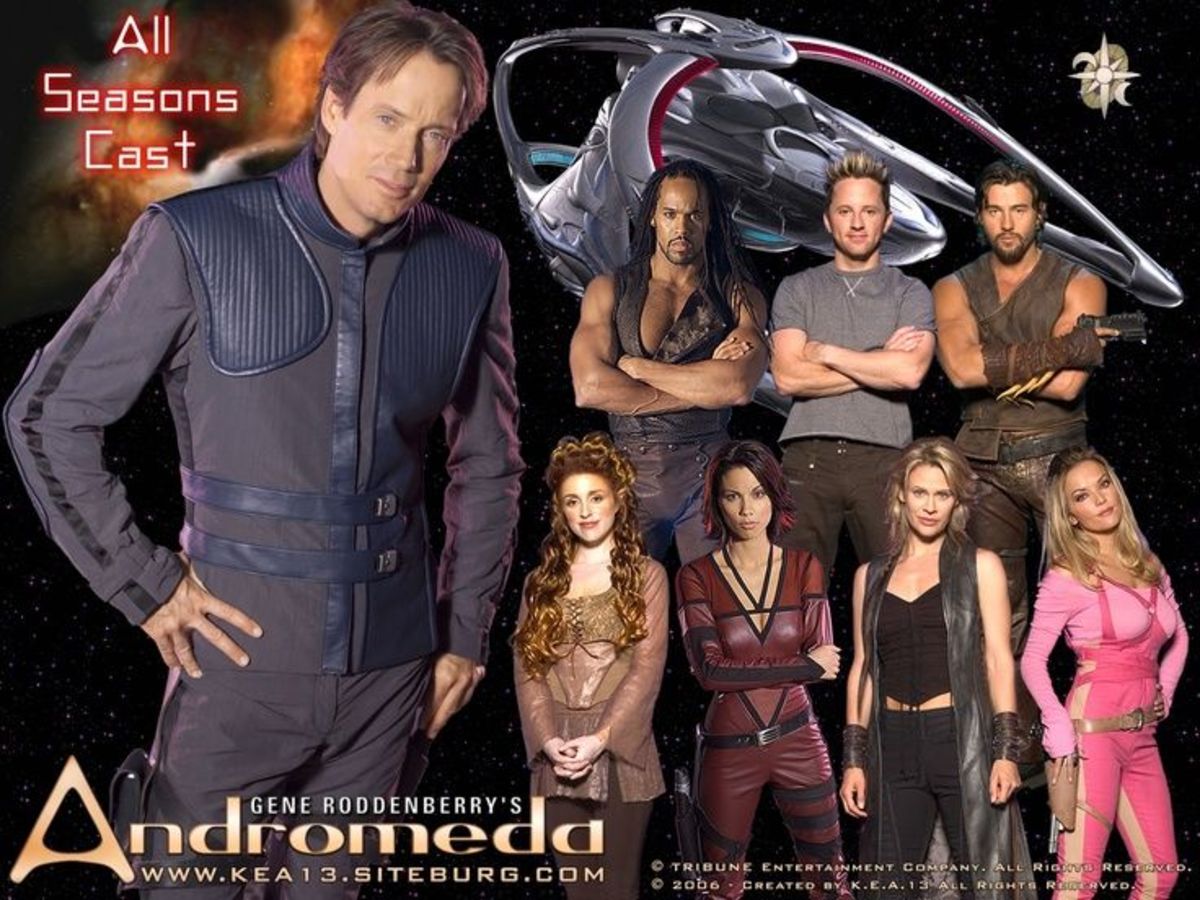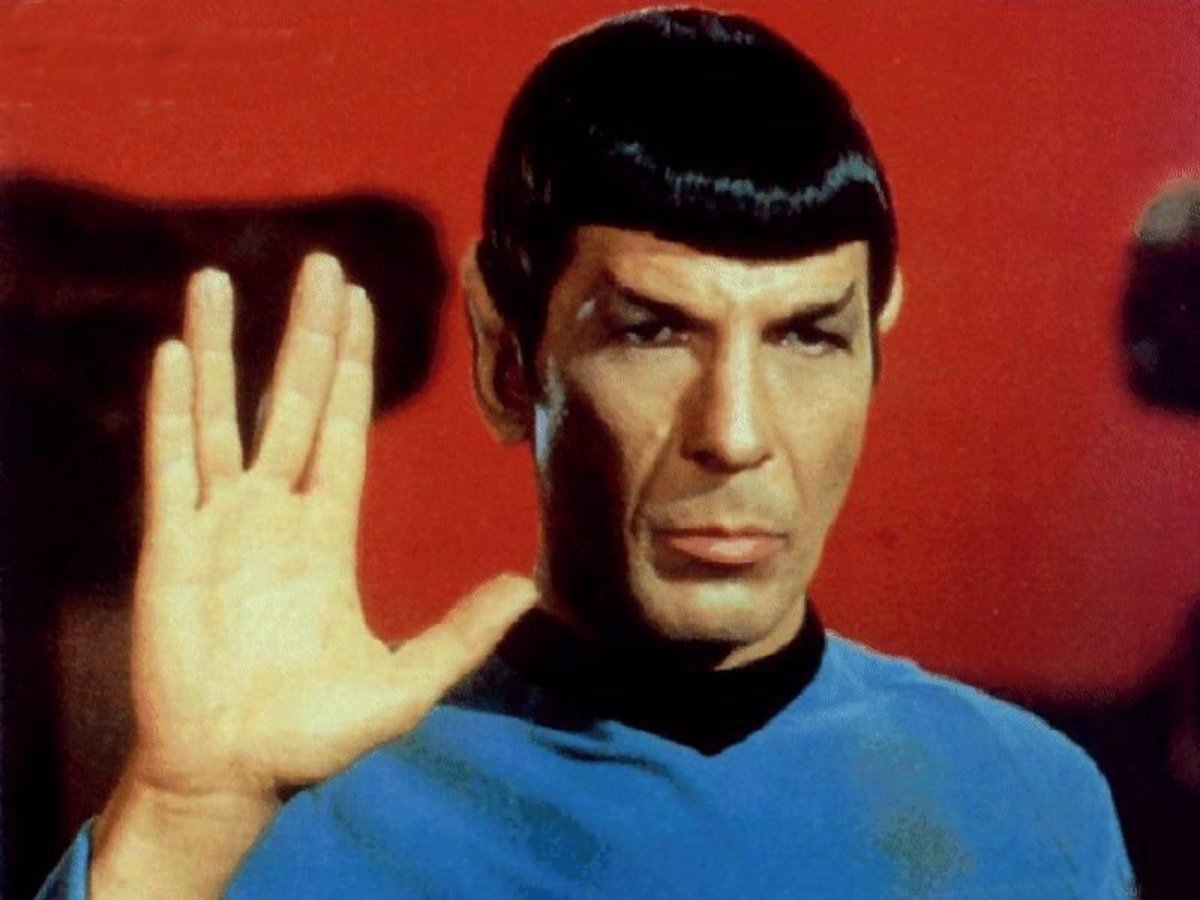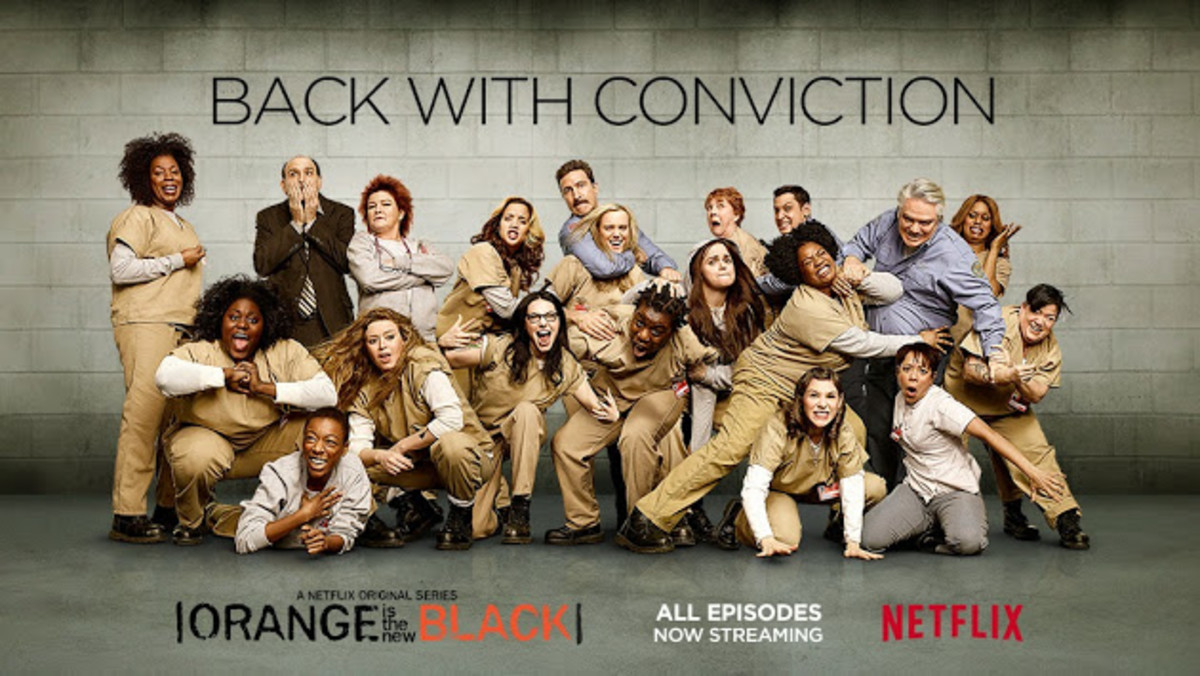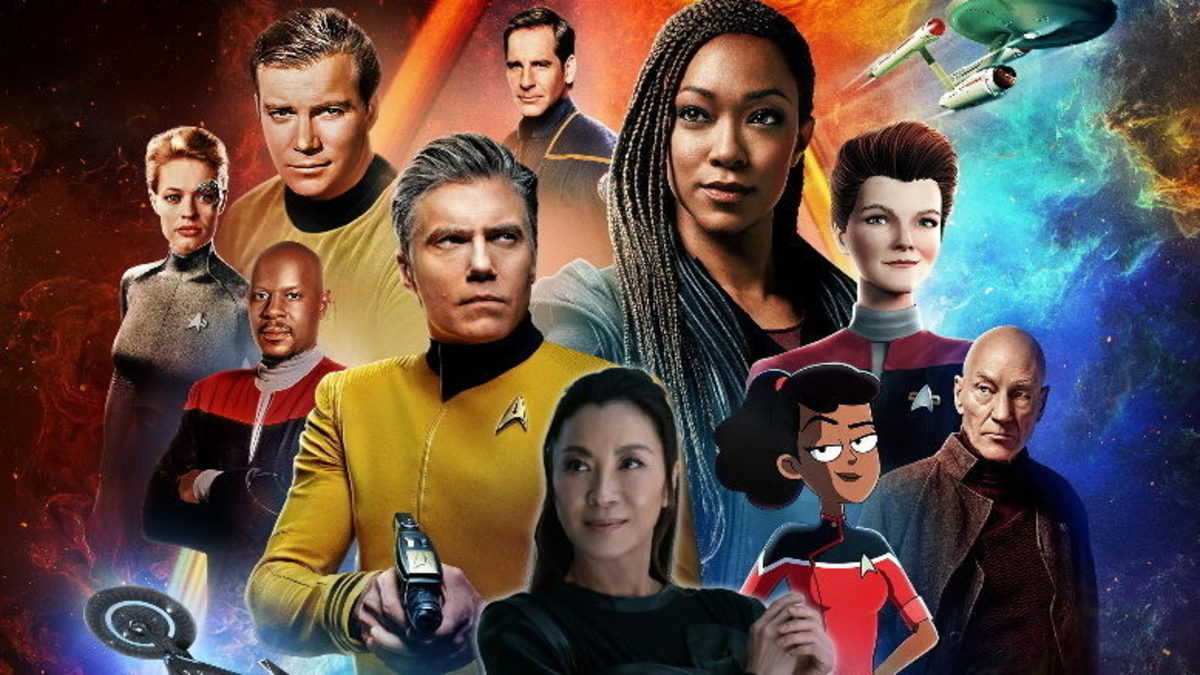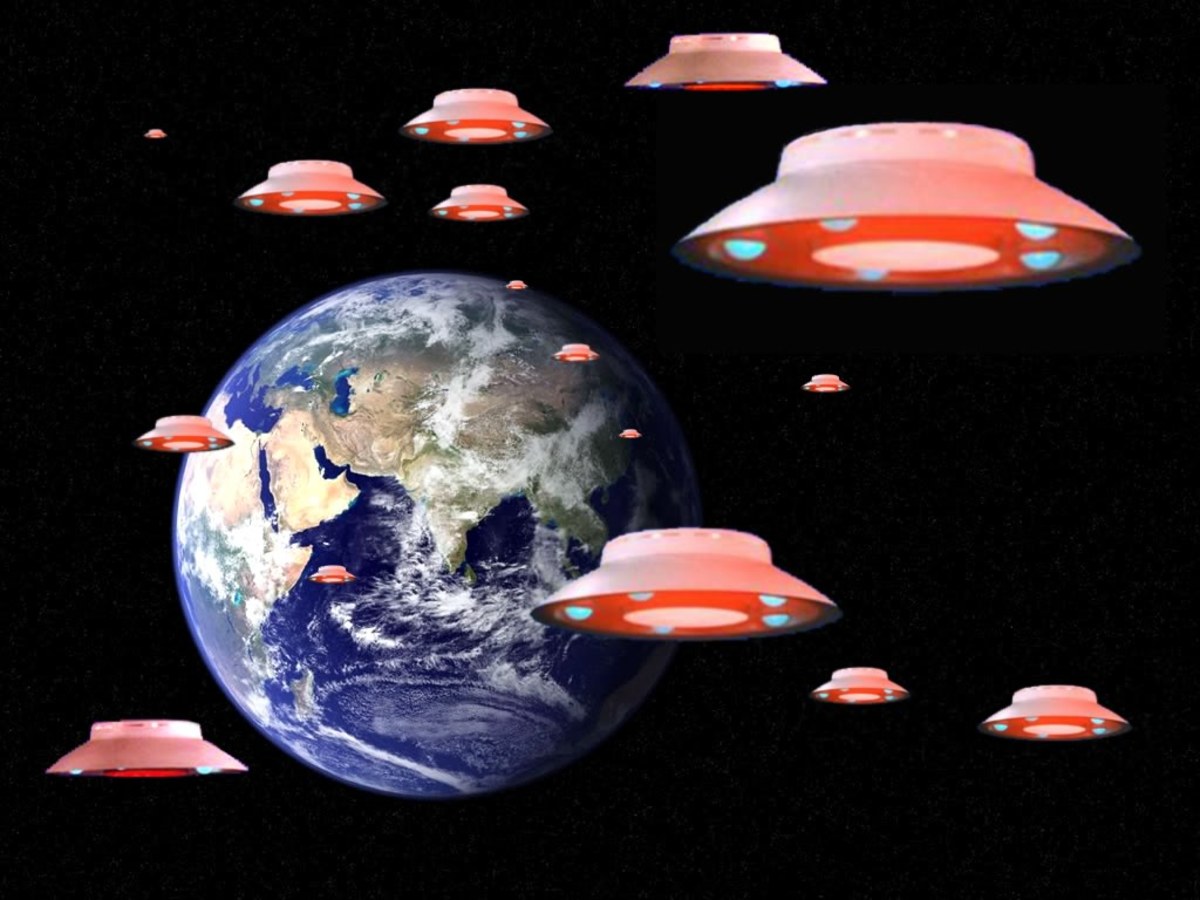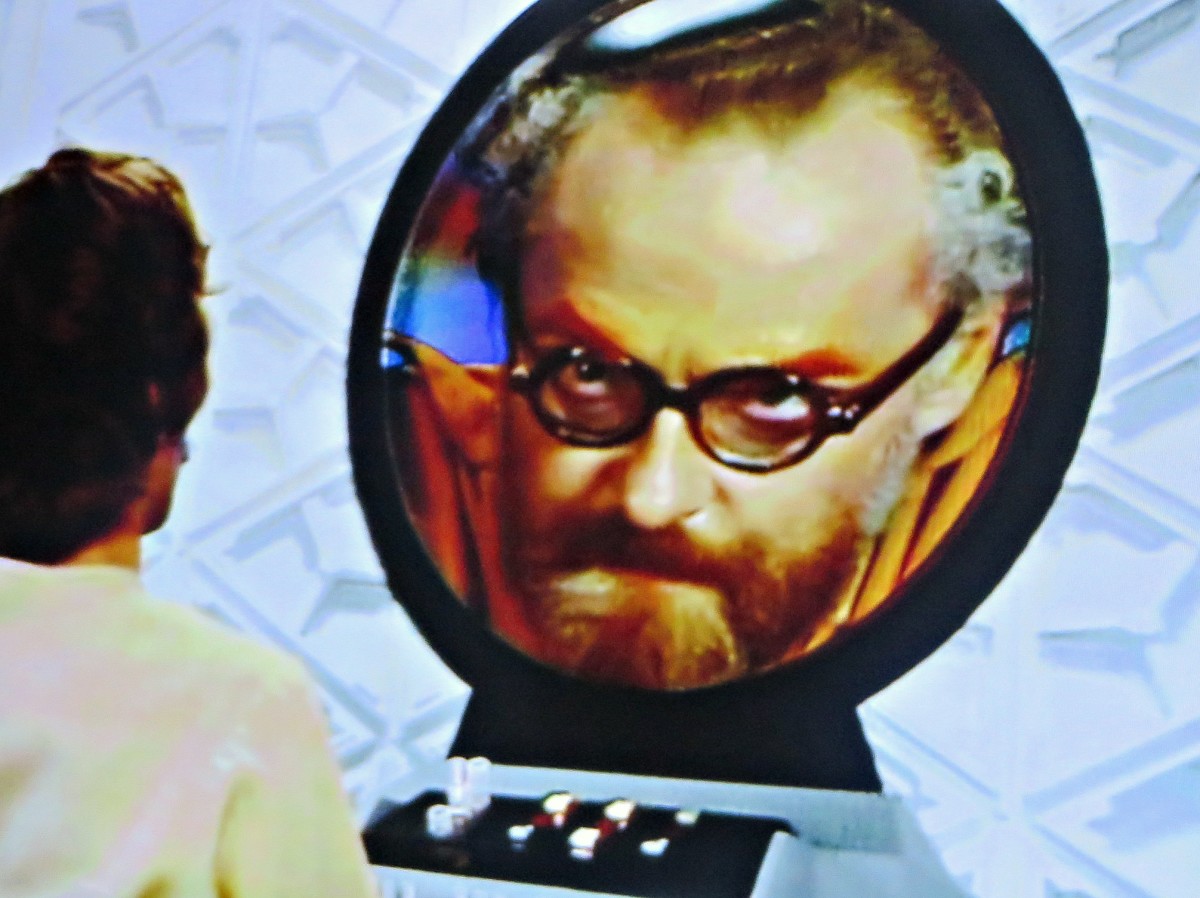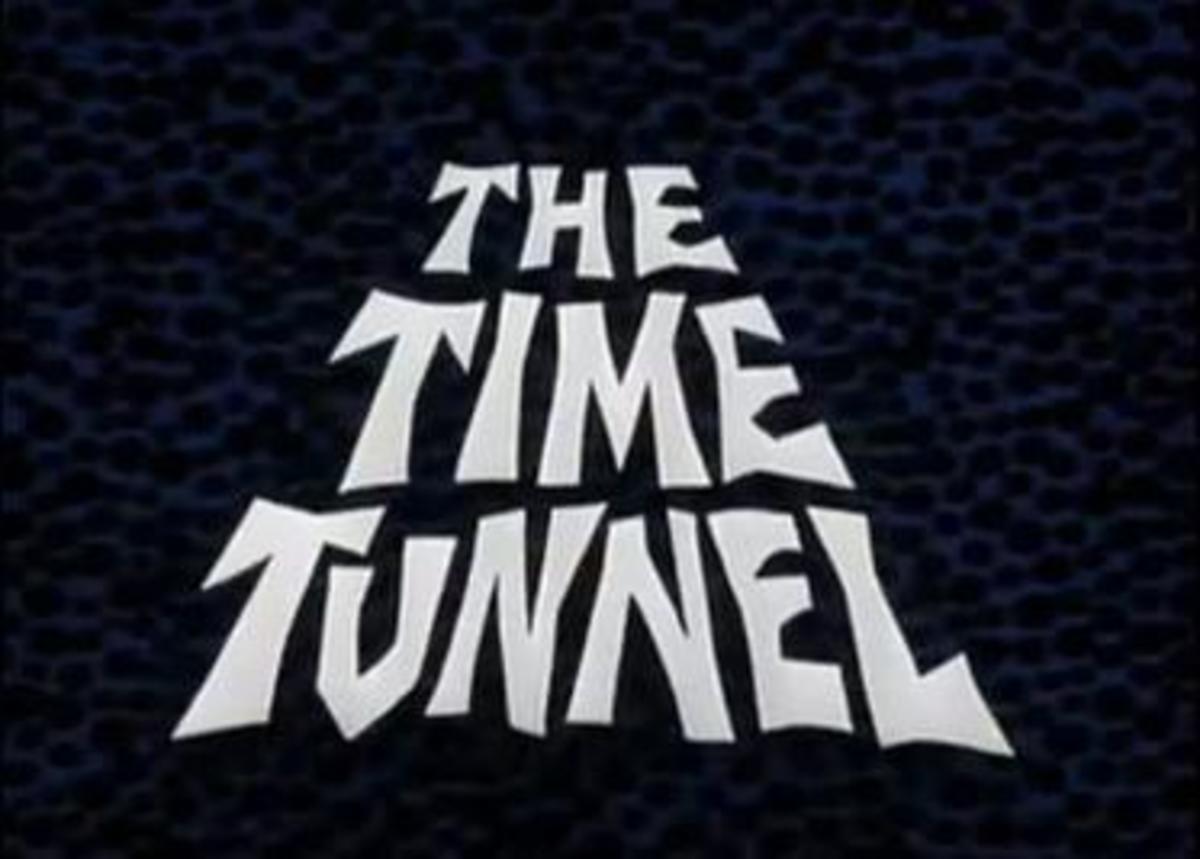Deep Space 9: The Best Trek?
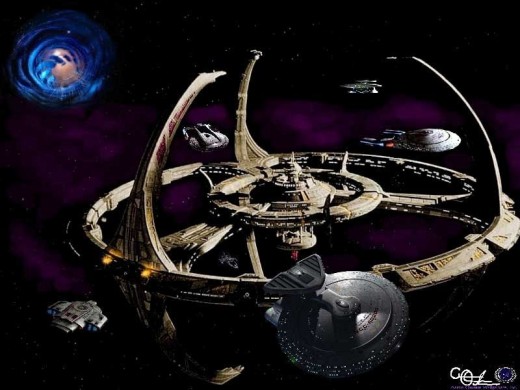
To Start
I actually began to view Deep Space Nine in Season Four with the arrival of Worf.
I soon became a fanatic. Going back to watch the first seasons, rewatch the rest.
It had been the best Trek, possibly the best sci-fi series I had ever seen and needed to comprehend how it had slipped beneath my radar when it first aired.
A Quick Skim of TOS and TNG
Star Trek, TOS...
I watched every episode, I memorized lines. I adored Spock, but trusted Kirk as Captain. I found Bones more than a bit racist, and loved Uhuru. I felt Sulu should have had more to do, but loved the show.
In Reflection...
The sets were cheesy, the cheapness apparent to more jaundiced eyes. Some of the scripts needed reworking, more focus.
However, it dealt with many important issues, and effected much of our attitudes.
IN TOTAL
The concepts, the Universe, the character interplay, was like nothing we had known. Star Trek was a fantastic idea and sadly, the Producers didn't get it.
Star Trek, The Next Generation
We knew the drill, we were hungry for Trek, and with all the money thrown at it, with the large cast and the interesting connotations, we were far more willing to accept whatever happened.
On Reflection
So much more could have been done, and the almost ambivalent attitude made it a bit bland. Although certain characters and events might jump out at us, it was not iconic as TOS.
IN TOTAL
They had the money, they had the fans, they had everything, and the show could have been more than it was.
Which brings me to DS9
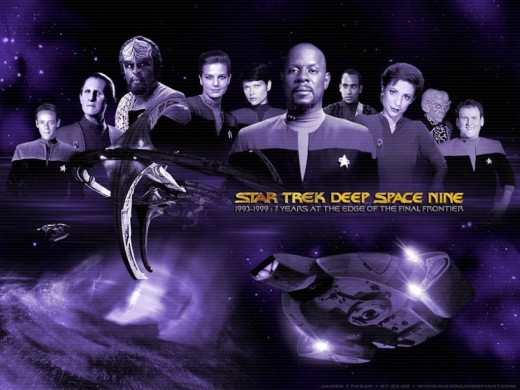
Gaffes
Before I begin a season by season review, focusing on the 'shift' from episodic to story arc a few general detractions.
Firstly, American idioms.
Why do the writers persist in putting American idioms in the mouths of non-Terrans?
If one is not an American, certain of the phrases require a universal translator.
Yes, I know it is an American show made in America staring mostly Americans. But once one is imagining some kind of humanoid from some other planet, maybe,
just maybe, they could take a listen to a language other than American English.
With squads of writers, why hadn't any of them noticed that the slang used by
many of the characters, (take out the Ferangi) is California circa 1990?
(Take a listen to Firefly if you need an audio aid)
Secondly, it's a bit too easy to change appearances; make Sisko into a Klingon
or Kira into a Cardassian. This ease virtually shouts;
"Don't we got a great make-up team?"
Thirdly, the Holosuites go a little too far.
Let us not forget if they are a room five meters by five meters, although they might look like the view from the Grand Canyon, if you walk five meters you hit the wall.
There are a number of other bits and pieces, which totally detract from the quality, but these gaffes are rather glaring.
The Positives
The term 'story arc' is used by writers to infer that there is an overriding continual
story being told.
There may be a few side plots, a few one shot characters, but the story is told in consecutive sequences.
In the first few seasons this obvious idea was not so obvious.
There were two part or three part episodes but they were 'completed' and followed/ proceeded by the 45 minute complete in itself no particular sequence episodes.
If one is flying aimlessly in a space ship unaware of where they are going or what they will meet anything is okay.
This week a character can fall hopelessly in love at minute 7 and never see the beloved after minute 42 and thus ends the potpourri of emotions, attitudes, action.
If one is stuck on a space station seeing the same people every time they enter a corridor it doesn't make any sense to have disjointed episodes.
Once the writers figured this out, one could not miss an episode, and they matched so perfectly one to another as if they were shot as one continuous action.
This is where DS-9 excelled and it seems any subsequent Trek or any sci-fi made after 1999 using the same characters needs to recall what happened to this one in epi 3 not forget.
It is far more engaging. If one cares about a character who suffers some trauma, that it isn't forgotten next epi.
Call it a Space Opera if you want, fine, but Soap Operas have loyal followers for decades not seasons.
And there is a very real market for a weekly Space Opera which is character centric moral tales. Which is what DS-9 happened to be.
Conclusion
TOS, that is the original Star Trek, suffered because those who produced it didn't see the potential, the importance. As early as 1970, when it was in syndication, the
viewership was enormous.
This should have activated a few brain cells and had it brought back.
Hire a team of sci-fi writers who were Trekkers (or Trekkies) who could elaborate and connect and recognise the impact.
ST: TNG; that is Star Trek, the Next Generation could have been all that. It had a virtually captive audience and the reality that people were more interested in the characters than in the whizbang tech.
DS-9; Deep Space 9 realised, by the 3rd season, that a story arc was vital and that the 'one offs' were not what caught the viewers. Yes, there could have been some improvements, but it was certainly the best Trek.
It had interesting characters, plots, tech, and mixed them usefully.
The Next Trek?
What one has to get is that it is the characters who catch the eye, not just the clever plot. One has to select actors who are in for the long haul, who can bring an excitement to the character. There has to be deep back stories and personalities; this makes the viewer care.
The plots have to make sense, be connected; for this is a weekly show. The characters are to have memories of past plots, not start walking through a situation saying lines.
Star Trek Voyager realised this. Being lost in space, virtually confined to the ship, the characters had to be the focus. It was, in a way, a moving DS-9
The movies, from the new Star Trek universe is the abandonment of 'canon' the make it up as you go along style. This turned off many viewers.
The new show; Star Trek Discovery, named STD by Trekkers, isn't worth mention.
Picard was a biography; but the new show Strange New Worlds has taken the ideas, the interactions, and become the Star Trek we dreamed of.
